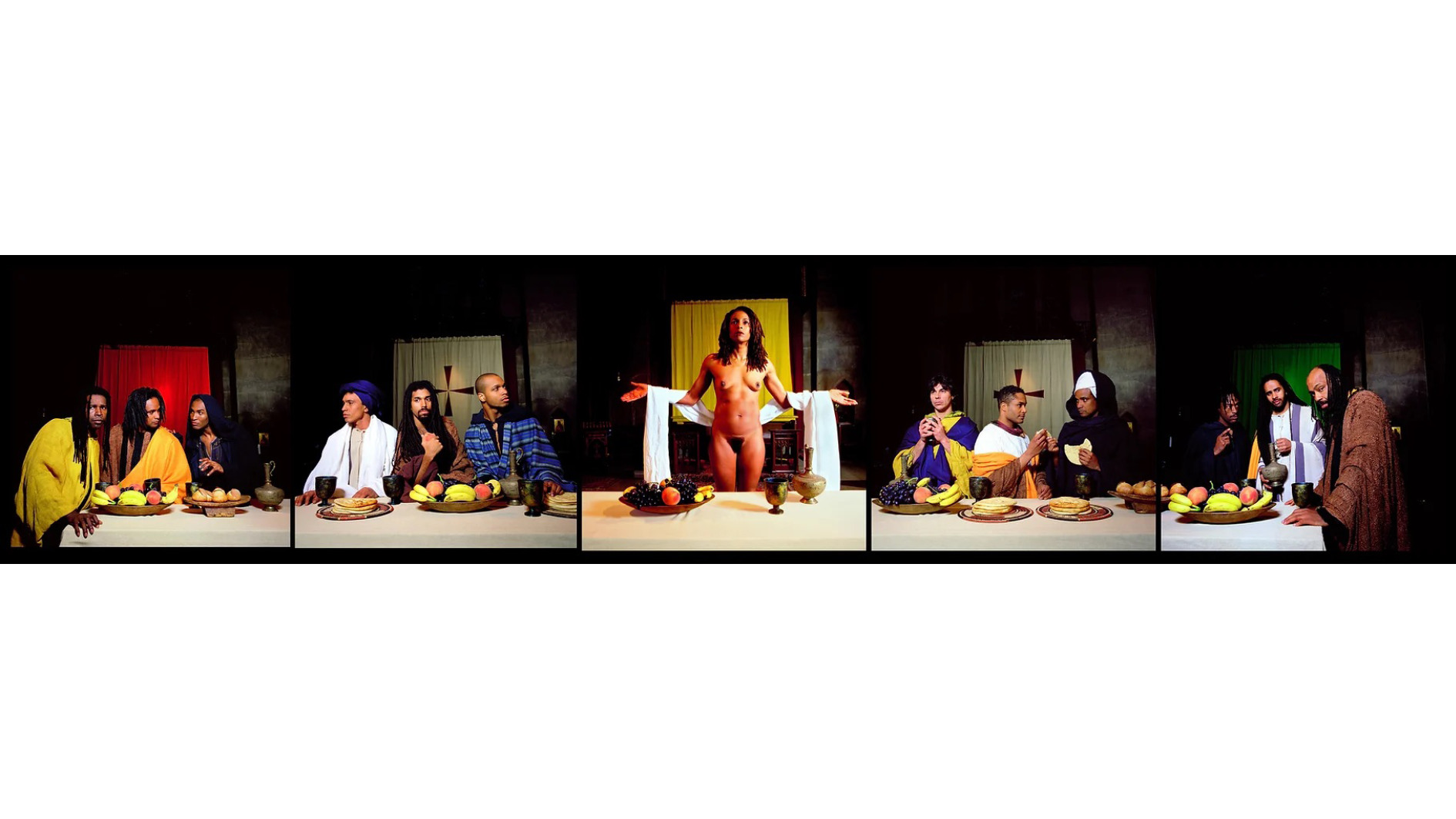Man oh Man
Is Renée Cox an African swept across the Atlantic or a human swept across time?
Renée Cox, Yo Mama’s Last Supper, 1996
Image: African
Cox places her interest in the interpersonal dynamics of racism and racial stereotyping where it belongs; the surface. Her first treatment of the parody that is race are the titles of her works, pointing laughingly at ebonics. Titles as simple as Yo Mama’s Last Supper, coupled with content of the opposite nature. Note the black female Messiah, the braided placemats, and the white Judas.
Being of African heritage - and being in general - is loaded with meaning. With so much meaning it is easier to assume others assume trials and tribulations. A stranger might shake a head in shame about Treyvon, raise a fist in solidarity, and go about their day not noticing your MAGA hat. Renée exposes our assumptions, rewarding the viewer who dives deeper. The idea of Christ though revised and reworked over time - #Nicaea - is one of transcendentalism. Ignoring appearances to focus on the spiritual under the cosmic banner some call “God.” By channeling this image and persona, Renée makes claims above questions of Christ’s race or gender. She presents claims of her nature - the universe in a bottle. Making assumptions simplifies a complex container with a label that reads, “Coke.”
Ultimately, Renée’s image was warped and wasted by authority. In 2001, Mayor Giuliani of New York, calls the artwork ''disgusting,'' ''outrageous'' and ‘'anti-Catholic.'' The artist’s response is appropriate, “Get over it.” (1)
Identity: Human
Humans are a product of physical law rising into consciousness, the details of which deserve a paper of their own (2). These laws unite us as humans; nobody chooses when and where we’ll be born. The case of Africans in the Americas is complicated but common; a foreign people in a foreign land. This rise is well detailed in LeRoi Jones’ Blues People. LeRoi states, “…their customs, attitudes, desires, were shaped to a different place, a radically different life (3).” Despite this and due to resilience, culture was recreated in a void, starting with gospel leading to the blues, rock, jazz, rap, and just about anything culturally relevant to the USA. After being tossed into the void, culture rose from the ashes. The mediums, mechanisms, and messages become strictly irrelevant. An artist provides a moment of reflection regardless of identity. The image below, Liberty in the South Bronx, summarizes this notion:
Renée Cox, Liberty in the South Bronx, ca. 2000
Labels
Make the decision. Is Renée Cox an African swept across the Atlantic or a human swept across time? Is she a race, and gender, or, billions and billions of atoms making sense of this world? Let’s dig deeper, ignore the labels, and take the artist’s advice - “Get over it.”
Renee Cox, Missy By the Pool, 2008
Bibliography:
Bumiller, Elisabeth. “Affronted by Nude ‘Last Supper,’ Giuliani Calls for Decency Panel.” The New York Times, February 16, 2001.
Hofstadter, Doug (2007). I am A Strange Loop. New York: Basic Books
Jones, LeRoi, 1963. Blues People; The Negro Experience in White America and the Music That Developed From It. William Morrow and Company.
Cox, R. (2001). Renee Cox: American family. New York: Robert Miller Gallery.


